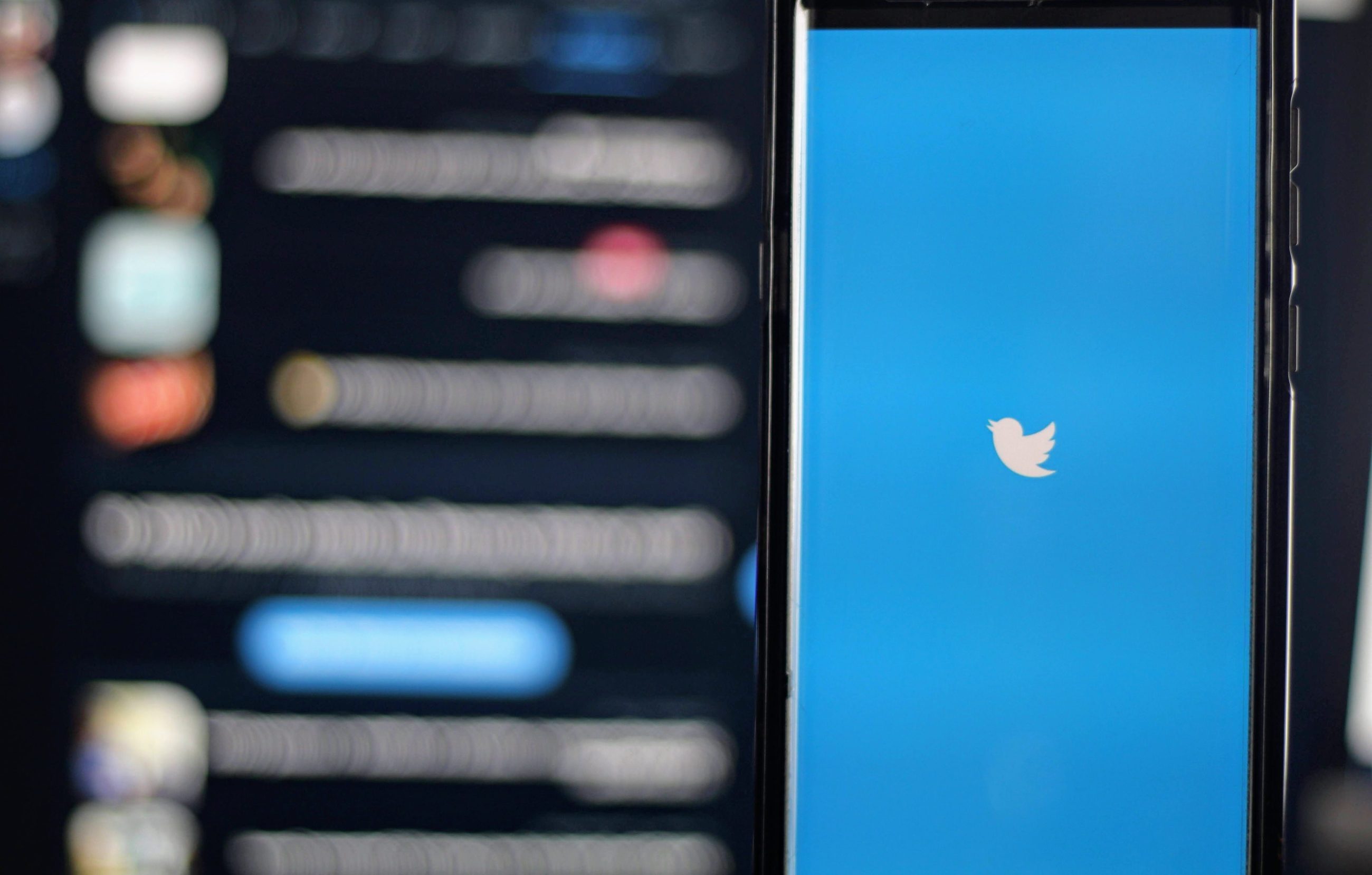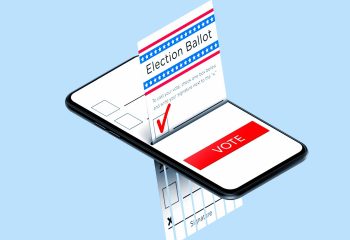
How Americans view tech and internet companies’ impact on the 2020 election
Americans think major technology and internet companies such as Facebook, Twitter and Google have a significant impact on the U.S. electorate, and new polling from Gallup and Knight Foundation finds that the public views them more negatively than positively on most issues related to the election.
These findings are from two surveys, conducted Sept. 11-24 and Sept. 24-Oct. 5, each with more than 1,200 U.S. adults who are members of Gallup’s probability-based national panel. These surveys build upon previous research that Gallup and Knight conducted late last year.
The main takeaways include:
1. Americans think tech and internet companies influence elections, and they rate the companies’ platforms negatively for their election and political coverage.
Americans think major internet companies have slightly more influence on voters’ choices and actions in presidential elections than do news outlets that specialize in covering national politics. While nearly nine in 10 say both sources have at least “a fair amount” of influence, 50% of Americans believe internet companies have “a great deal” of influence, compared with 43% who say the same of news outlets.
Despite recent efforts made by technology companies to address misinformation and foreign interference surrounding this year’s election, just two in 10 U.S. adults say Facebook, Twitter and Google are doing an “excellent” (3%) or “good” (18%) job covering the 2020 election. At the same time, nearly eight in 10 rate their coverage as “only fair” (32%) or “poor” (46%).
Both Democrats and those with liberal-only news diets as well as independents and those with mixed news diets view major tech and internet companies’ coverage of the 2020 election more positively than Republicans and those with conservative-only news diets. While no more than 26% of any of these groups rate internet companies as excellent or good, majorities of only Republicans (59%) and those with conservative-only news diets (67%) rate them as poor.
Most Americans give these companies little credit for improvement since the 2016 election. In all, only one in 10 U.S. adults say major internet companies are doing a “better” job than in 2016 at handling election-related information; 50% say “worse” and 39% “about the same.” Majorities of Republicans (75%) and those with conservative-only news diets (80%) rate them as worse. Democrats and those with liberal-only news diets are more divided, with 54% of Democrats and a 49% plurality of those with a liberal-only news diet saying the companies are about the same now as in 2016.
2. Americans say technology and internet companies do little to help them learn about election issues.
Of six measures related to helping Americans be informed voters, major internet companies are rated best (with 48% rating each as “excellent” or “good”) for promoting citizen participation in the election, such as helping voters know how and where to register, vote, volunteer or donate, and for allowing people to express their opinions. Only as many as one in five rate the companies positively on four other areas: helping voters learn more about the candidates for public office, helping voters understand the key election issues, promoting civil discussions about the election, and preventing the spread of false or misleading information.
Majorities of both Democrats (66%) and Republicans (78%) think major internet companies are doing a poor job preventing the spread of misinformation online. Likewise, 53% of Democrats and 65% of Republicans rate the companies as poor for promoting civil discussions about the election. A majority of Republicans also rate the companies as poor at helping voters understand key election issues and learn more about the candidates for public office.
Partisans’ views diverge on the remaining two areas — allowing people to express their opinions and promoting citizen participation — with majorities of Democrats rating the companies as excellent or good and majorities of Republicans rating them as only fair or poor.
3. The public is largely opposed to targeted political advertising online.
Over two-thirds of Americans, 68%, think internet companies should not use any information about people to reach certain voters with a targeted political ad. They would prefer that the ad be shown to anyone who uses the website or app without regard to their background characteristics.
Twenty-one percent would be amenable to the use of limited, broad information such as a person’s gender, age or ZIP code, and 10% say it would be acceptable to use any available information, including details about their interests, frequently visited websites and search topics. The latest data are similar to previous findings from Gallup/Knight in December 2019.
While majorities of Americans across age groups do not think any information should be used to target certain voters with political ads, younger adults are less turned off by it. Fifty-eight percent of U.S. adults aged 18-34 think ads should be shown to anyone without regard to their individual characteristics; 69% of those aged 35-54 and 76% of those aged 55 and older hold the same view.
Google is now limiting targeted political ads, and Twitter has banned them, but Facebook is still selling targeted political ads. Facebook has said it will ban new ads in the final week of the campaign and, like Google, will not run any political ads after Election Day for an indefinite period of time, while Twitter banned political ads entirely beginning in late 2019.
4. There is less agreement among the public about how online political ads should be regulated.
Given a choice of four possible approaches, 55% of Americans think websites should be required to disclose who paid for a political campaign ad, how much it cost and who the ad is aimed at.
Twenty percent of Americans stand against regulation, saying ads should not be controlled because they are a form of speech. About one in five, 19%, take a hard-line approach by favoring a complete ban on online political ads. Meanwhile, fewer than one in 10 (6%) support allowing ads but not showing them in the final week of an election campaign.
Partisans have different views on the regulation of online political ads — 66% of Democrats but fewer Republicans (47%) and independents (48%) favor full disclosure about the details of who funded an ad. Fewer than 20% of Democrats and fewer than 25% of independents hold each of the other opinions, but 36% of Republicans believe campaign ads should be unregulated, and 16% say no political campaign ads should be shown online.
These findings are similar to the results of a nearly identical question that was asked in December 2019 and again in the September 2020 poll. That question asked about banning online political campaign ads in the final month, rather than week, of the campaign.
5. Americans broadly agree that major internet companies should refuse to publish political ads that include outright lies.
Four in five say an ad that provides the wrong date for Election Day should not run. Two-thirds say the same of an ad that falsely says a politician voted for a specific policy. The public is more divided in their views on an ad that misrepresents a candidate’s position on an issue by providing some accurate facts but leaving out others.
These views have not changed since December.
Image (top) by Joshua Hoehne on Unsplash








